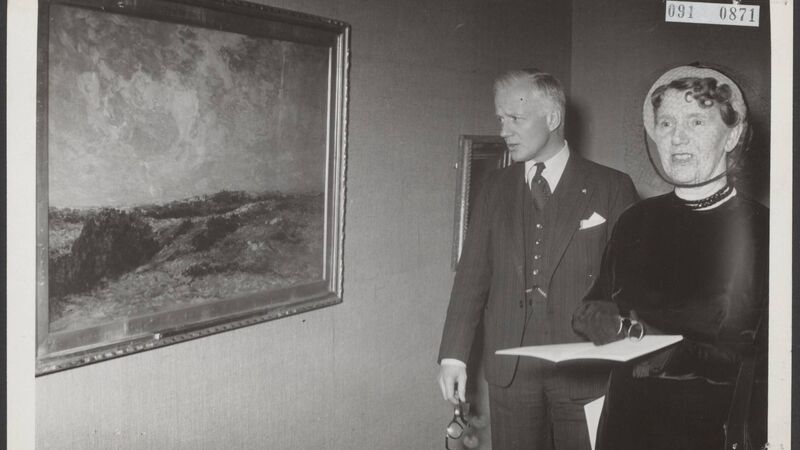Clodagh Finn: Remembering the first female envoy who paved the way in foreign affairs

Josephine McNeill opens an exhibition of Irish paintings at the Stedelijk Museum in Amsterdam, with the city’s Mayor Arnold Jan d'Ailly. Picture: Elsevier Photo collection courtesy of Nationaal Archief/Anefo
When Cork-born Josephine McNeill became the first Irish woman to head a diplomatic mission abroad in 1949, she might have thought an Irish female foreign minister could not be far behind.















